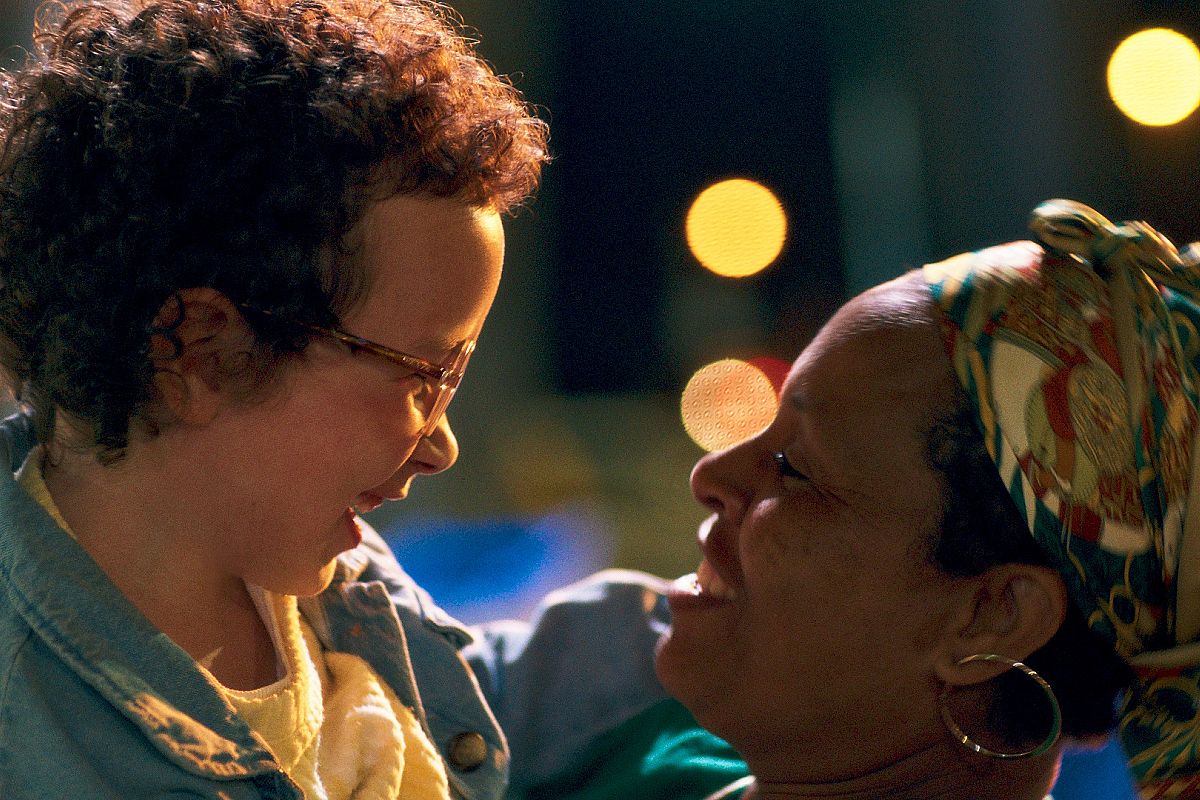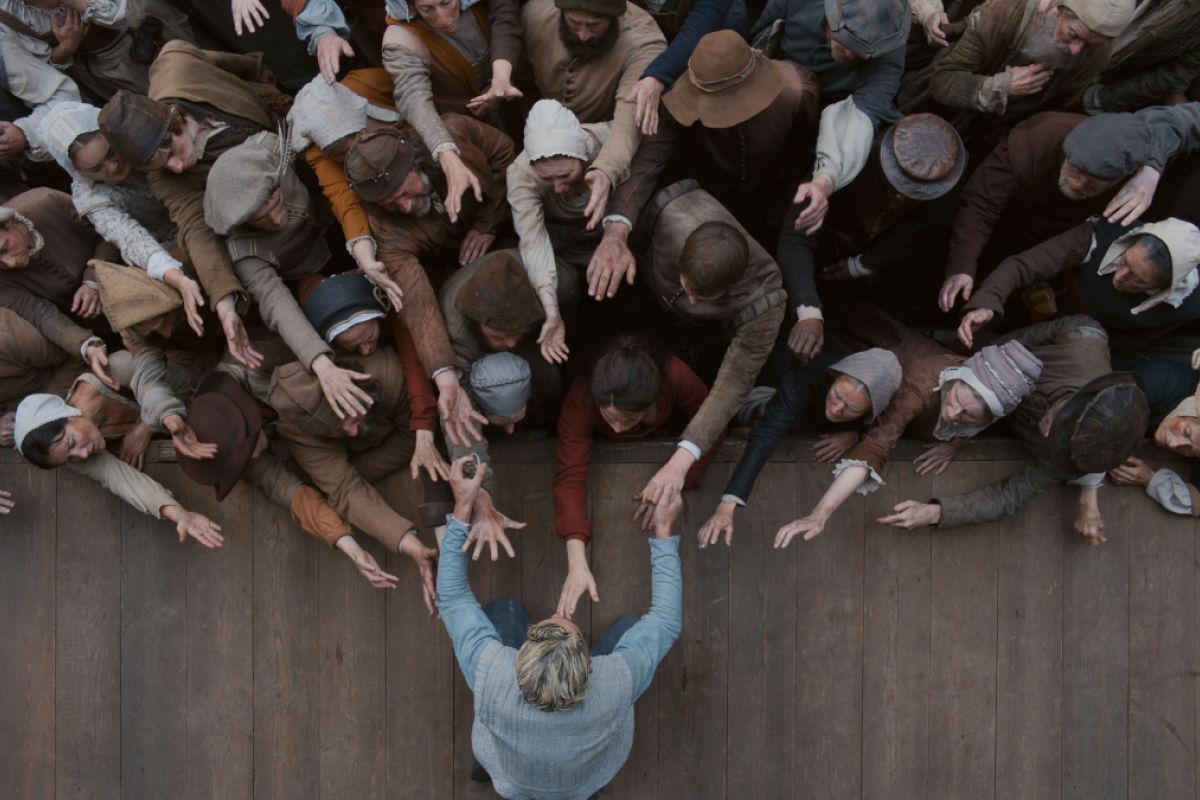
Context around Àma Gloria: colonialism and capitalism of care work
Guest piece by The Decolonial Centre's Mohammed Elnaiem
Mohammed Elnaiem
Make sure to go down to Hyde Park Picture House to see Àma Gloria, an incredible film which made a buzz last year, when it opened up the Critics Week Cannes Film Festival. And if you're there on the 14th, do join the Decolonial Centre, and help us explore the relationship between care-work, gender, and colonialism.
But first the film itself. Àma Gloria is about a six-year-old girl named Cléo who has immense love for her nanny, Gloria. Yet, like many nannies from the global majority who come to work in the West, Gloria has a family back home. After a family emergency, Gloria is forced to return to Cape Verde to care for her own children, and must therefore give her final farewells to Cléo. But Cléo isn't ready to let go, and she fights with her father, for the right to spend one last summer with Gloria in Cabo Verde. Àma Gloria is about that last summer. And believe me, it will make you cry.
The filmmaker, Mary, was inspired by her own childhood nanny, Lorinda, who had to leave her to return home. And the actress who plays Gloria, Ilia Moreno is a real nanny from Cabo Verde who worked in France herself. The film blends the childhood of Marie and the adult life of Ilia Morena. The connection with colonialism is implicit, but it's something that the director: Marie Amachoukeli is passionate about herself, even if it isn't fully foregrounded in the film.
What's powerful about this film is that it really foregrounds love, passion, and grief. Like in real life, colonialism, migration and race, provide the background conditions which can only be uncovered through critical thought. And so, in case you lack the broader colonial context which inevitably shapes the relationship between the millions of Cléo's and Gloria's in the world, we have three things for you to think about ahead of the film:
1) Care work is about capitalism
Think about it this way, the system gives those of us who are able to be employed, a wage in exchange for work. It also needs to take care of those of us who are unable to work, including children, the disabled, and the elderly. And historically this has often fallen on the shoulders of women. Capitalism has relied on patriarchy to make sure that work gets done. This work is often feminised. Women have been the ones to take care of children and the elderly. But today many sociologists are also talking about a "crisis" of care work in advanced economies across the world. That means even the unpaid care work of women is not enough to run the economy. As the sociologist Sara Farris puts it in the context of the West:
"The increasing participation of ‘native’ women in the ‘productive’ economy since the 1980s, the decline of the birth rate and the increasing number of elderly people, coupled with the erosion, insufficiency or simply non-existence of public or affordable care services, has resulted in the marketization of so-called ‘reproductive’ labour, which is now done mainly by migrant and racialized women. The demand for labour in this sector has grown so much over the past twenty years that it is now regarded as the main reason for the femini- zation of international migration."
Of course we're not just talking about live-in domestic workers here. If you're like me, you know that even the middle class is struggling to get by, and many of us can't afford to pay rent, let alone hire a nanny. But even those of us who, for example, need a "two-earner" household to survive still need somebody to do the care work. This is true for the economy as a whole. With no subsidised day-care, austerity, and most importantly a world where nobody seems to have time, somebody needs to do the cooking, cleaning, and caregiving tasks that keeps a society running. The Decolonial feminist scholar, Francoise Verges, argues that before we even show up to our offices, there are racialised women who are waking up at graveyard hours and making sure that those offices are clean. Because of the crisis of care then, Verges argues, we have an "economy that wears out racialised bodies, depletes the strength of certain individuals designated by capital and by the state as fit to be used up, to become victims of illnesses, debilitations, and disabilities." These are the migrant women that care for us all, who work either for large temp agencies on precarious contracts, or as live-in nannies in the homes of those who can afford it.
Which brings us to our second point…
2) Care work is about colonialism
Somebody has to be available to do the care work. These are people, particularly women, who live in regions deprived from colonialism. Live-in nannies are often doing that job because they are sending money back home. And back home is often a country that was once colonised. Countries like Cape Verde which was colonised by the Portuguese. These are debt-ridden countries, and countries which are still facing neo-colonialism. They are countries which are heavily indebted and are forced to change their economies along the lines of austerity measures demanded by financial institutions like the IMF and the World Bank. Many countries today, for instance, are forced to rely on remittances. The scholar Dr Carmen Teeple Hopkins, takes the example of the Philippines. In 1977, remittances represented 1.7% of the country’s gross domestic product (GDP). But by 2015, after the World Bank had forced the country to change its economy drastically three times, remittances represented 10.3% of its GDP. A huge portion of the Philippines GDP is based on sending women to work as nannies across the world, and in countries like Kuwait, they killed on the job, with their dead bodies found hidden in refrigerators.
And don't forget they are leaving their families back home. Which brings us to our final point.
3) Care work leaves behind global value chains
Think about it this way, we live in an era of increased stress, time-poverty and, well, we also don't really have much energy or care left in us after a hard day of work. And so, we rely on racialised, precarious women to fill that gap. But that creates a global care chain, where women from poorer regions migrate to perform care work in richer regions for wealthier families, but they leave behind families that also need to be cared for, and this means more burden on extended family members like grandparents and older children. Can you imagine what it feels like to be detached from your own mother who is working in the house of somebody else?
Global care chains have forced many sociologists to reckon with a very difficult question: What is a family?
We want you to keep these things in the back of your mind as you watch Àma Gloria. And remember, despite all of these complexities, the relationship between a nanny and child can still be one of unlimited, boundless love. It's all, after all, very complex.

Àma Gloria is showing daily at HPPH from Fri 14 June. You can book tickets here.
This piece is written by Mohammed Elnaiem from The Decolonial Centre, a political education platform committed to spreading anti-colonial and decolonial perspectives on history, social theory, and current affairs. You can find out more about The Decolonial Centre on their website.
Our screening on Friday 14 June at 6pm will be followed by a post film discussion led by Mohammed Elnaiem who will be exploring the question posed by the decolonial feminist Francoise Verges, "who cleans the world?". This will be a vibrant discussion on feminised care work, migration, and the global colonial economy.


